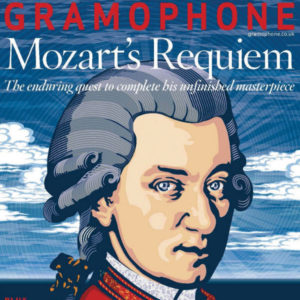Wagner “Die Meistersinger von Nürnberg”, Royal Opera House
The years have undoubtedly taken their toll and what seemed so fresh and new in 1993 – the pristine abstractions of Richard Hudson’s design, the washes of orange and gold light, the assertively jolly Brueghelesque costumes – now looks a little pantomimic. And yet the Shakespearian artifice of Graham Vick’s thoughtful and much-admired staging of Die Meistersinger retains a dream-like quality where we the audience can be a part of the midsummer madness and jostle for a place in the meadow to witness the white knight sing for his lady’s hand in marriage.
Music is, of course, at the heart of Meistersinger – music and civic pride – and as the church congregation gives thanks at the outset, a procession of children lay down small replicas of local landmarks like holy relics. The collusion of time, place, and “holy German art” is thus established right at the top of the opera. In the pit, Antonio Pappano rolls out his first Meistersinger in the house with glorious amplitude and fluency. It moves, it sings, and it reflects. The balmy nocturnal colours which suffuse Hans Sach’s monologue in act two – all rustling strings and nebulous horns – cast the spell of enchantment. But there is the ineffable sadness of the act three prelude, coming as it does after the midsummer madness of Vick’s still hair-raising Hieronymus Bosch-like riot of dangling, writhing, bodies, bursting through the false proscenium like so many fairground spooks.
In act one of this revival Wolfgang Koch’s Hans Sachs seemed conspicuous by his absence, the poet-cobbler reduced to a figure of quiet geniality – until one realised how the close proximity of John Tomlinson’s boomingly authoritative Pogner was drawing the ear from Koch’s bass-light voice. One adjusted to his lightish baritonal timbre and Koch’s performance grew with the evening, his diligence with text gradually compensating for the vocal gravitas that only a true bass-baritone can give us.
But the high-end casting in this revival brought us an incomparable David from Toby Spence, his act one set-piece full of felicitous bel canto touches, and Robert Lloyd, no less, as the Night Watchman. Peter Coleman-Wright’s Beckmesser was a bit one-dimensional, as was Simon O’Neill’s bravely sung Walther who will, I’m sure, cultivate more beauty in his trumpet-toned sound. Emma Bell’s spirited Eva, handsome of bearing and voice, found an abundance of that in the great act three quintet.
In the closing moments, the original Sachs in this production (John Tomlinson) is seen pushing his successor centre-stage. Holy German art will indeed prevail.
You May Also Like

GRAMOPHONE: From Where I Sit – September 2018
15/09/2018
GRAMOPHONE Review: War Paint – Original Broadway Cast Recording/Frankel
23/05/2018